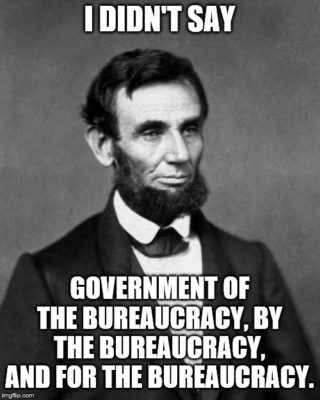The “deep state” is a network of entrenched bureaucrats, intelligence agencies, and other influential entities that operate independently of elected officials. The arguments for shutting down the deep are a more transparent and accountable government where elected representatives have greater control over decision-making processes. As it is now, elected officials deflect accountability for their actions by offloading the details of legislation to department administrators.
The assertion that those elected to run the government should be the ones actually running is simply the constitutional principle of representative governance. The electorate chooses elected officials to represent their interests and implement laws that are in line with the will of the people. Vivek’s pledge to deal with the deep state puts forth his desire to limit any excessive influence or power held by unelected entities, ensuring that the voters’ democratic mandate shapes the direction of the government.
In addition to mass firings within bloated, overly regulative departments, Vivek’s efforts to shut down the deep state will involve proposals to enhance transparency, accountability, and oversight mechanisms. Such reforms in how government agencies operate help to ensure that decisions are made in accordance with democratic principles and that elected officials have the authority to guide the direction of policy implementation.
Vivek knows that an unrestrained and shadowy government is the true threat to a democratic republic. His promise to address the deep state reflects a broader conversation about the balance between expertise, continuity, and democratic accountability within the government.


